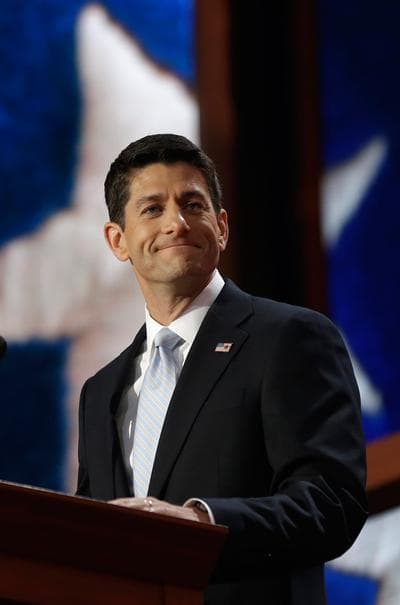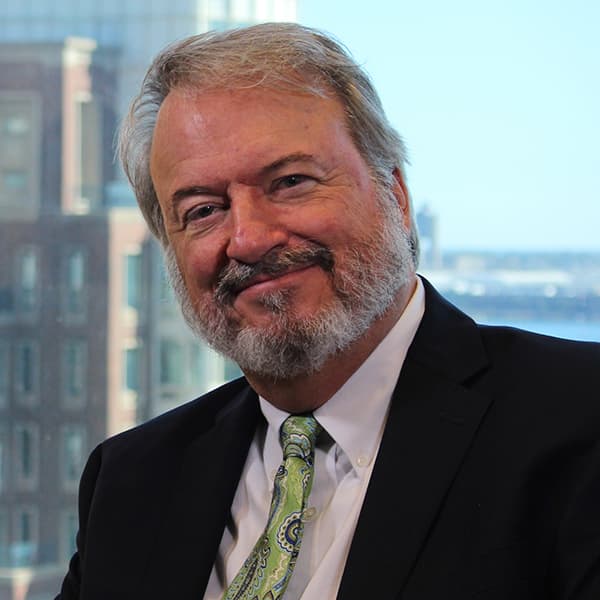Advertisement
Paul Ryan Delivers — Is He The New Reagan?
On Wednesday night at the Republican National Convention, Paul Ryan gave a speech that inspired conservatives while appealing to undecided voters with a reasonable tone, personal anecdotes and a good sense of humor.

He was Reaganesque in speaking with conviction, framing big issues as a clear contrast, and sounding cheerful and optimistic.
CNN anchor Wolf Blitzer acknowledged after, “What I really liked about the Paul Ryan speech was that he dealt with the big issues of the day, the substantive economic issues — jobs, health care, Medicare — he didn’t skirt those issues. Yes, there will be a serious debate, but at least the focus was on the No. 1 issue facing the American voter." The CNN focus group reinforced that the economy was indeed the paramount issue and they responded very positively to Ryan’s speech.
Some Obama supporters immediately tried to denigrate Ryan. Ironically, they fear him because he did not come across as scary. Worse, from their point of view, he pointed out things that liberal Democrats don’t want to admit. For example:
I’m the newcomer to the campaign, so let me share a first impression. I have never seen opponents so silent about their record, and so desperate to keep their power.
He’s right. Obama surrogates rarely want to talk about his record — the unemployment rate, low GDP rate, the high level of poverty, lack of consumer and investor confidence, the failure of stimulus, ObamaCare — but only about Romney and non-economic issues.
Ryan was the first speaker at this convention to really lay out the case against Obama:
Right now, 23 million men and women are struggling to find work. Twenty-three million people, unemployed or underemployed. Nearly one in six Americans is living in poverty. Millions of young Americans have graduated from college during the Obama presidency, ready to use their gifts and get moving in life. Half of them can’t find the work they studied for, or any work at all. So here’s the question: Without a change in leadership, why would the next four years be any different from the last four years?
Ryan might have been even more effective than Ann Romney in appealing to women when he said:
My mom started a small business, and I’ve seen what it takes. Mom was 50 when my dad died. She got on a bus every weekday for years, and rode 40 miles each morning to Madison. She earned a new degree and learned new skills to start her small business. It wasn’t just a new livelihood. It was a new life. And it transformed my mom from a widow in grief to a small businesswoman whose happiness wasn’t just in the past. Her work gave her hope. It made our family proud. And to this day, my mom is my role model.
Like Reagan, he connected his personal story to that of other Americans:
Behind every small business, there’s a story worth knowing. All the corner shops in our towns and cities, the restaurants, cleaners, gyms, hair salons, hardware stores — these didn’t come out of nowhere. A lot of heart goes into each one. And if small businesspeople say they made it on their own, all they are saying is that nobody else worked seven days a week in their place. Nobody showed up in their place to open the door at five in the morning. Nobody did their thinking, and worrying, and sweating for them. After all that work, and in a bad economy, it sure doesn’t help to hear from their president that government gets the credit. What they deserve to hear is the truth: Yes, you did build that.
Obama argued that his “you didn’t build that” comment was taken out of context, but Ryan made the telling point: Why would the president denigrate job-creators in a bad economy?
Politicians often claim to be optimistic; it’s considered a winning political virtue. “Hope and change” was an optimistic appeal. But, like his former mentor the late Jack Kemp, the congressman seems genuinely hopeful.
What gave Jack that incredible enthusiasm was his belief in the possibilities of free people, in the power of free enterprise and strong communities to overcome poverty and despair. We need that same optimism right now.
Again, like Reagan, he expressed his philosophy in personal terms. This was an example of reasoning that roused conservatives:
College graduates should not have to live out their 20s in their childhood bedrooms, staring up at fading Obama posters and wondering when they can move out and get going with life. Everyone who feels stuck in the Obama economy is right to focus on the here and now. And I hope you understand this too, if you’re feeling left out or passed by: You have not failed, your leaders have failed you. None of us have to settle for the best this administration offers — a dull, adventureless journey from one entitlement to the next, a government-planned life, a country where everything is free but us. Listen to the way we’re spoken to already, as if everyone is stuck in some class or station in life, victims of circumstances beyond our control, with government there to help us cope with our fate.
It’s the exact opposite of everything I learned growing up in Wisconsin, or at college in Ohio. When I was waiting tables, washing dishes, or mowing lawns for money, I never thought of myself as stuck in some station in life. I was on my own path, my own journey, an American journey where I could think for myself, decide for myself, define happiness for myself. That’s what we do in this country. That’s the American Dream. That’s freedom, and I’ll take it any day over the supervision and sanctimony of the central planners.
Ryan has challenged liberal Democrats to a great debate about the major issues. But there is a problem for liberal Democrats in accepting that challenge. Their candidate is the gaffe-prone Joe Biden.
Biden has more years of experience, but less knowledge of economic and fiscal issues. Maybe Biden will be tempted to imply what an elderly Democratic friend of mine said in an email after Ryan’s speech: that he is too young.
Remember Reagan’s famous quip in a debate with Walter Mondale? "I will not make age an issue in this campaign. I'm not going to exploit for political purposes my opponent’s youth and inexperience."
In Ryan’s convention speech he flipped the age issue with humor of his own:
We’re a full generation apart, Gov. Romney and I. And, in some ways, we’re a little different. There are the songs on his iPod, which I’ve heard on the campaign bus — and on many hotel elevators. He actually urged me to play some of these songs at campaign rallies. I said, I hope it’s not a deal-breaker, Mitt, but my playlist starts with AC/DC, and ends with Zeppelin.
When Ryan was first picked, I called him “the catalytic candidate.” He changed the focus of the race and inspired conservatives who had been skeptical of Romney.
Liberal critics will go after Ryan with greater ferocity now, but here are the two questions that should trouble them:
- Do they have in Biden a candidate with the intellect and wit to out-debate Ryan?
- And will liberals become as energized for Obama-Biden as conservatives are now energized for Romney-Ryan?
This program aired on August 30, 2012. The audio for this program is not available.
